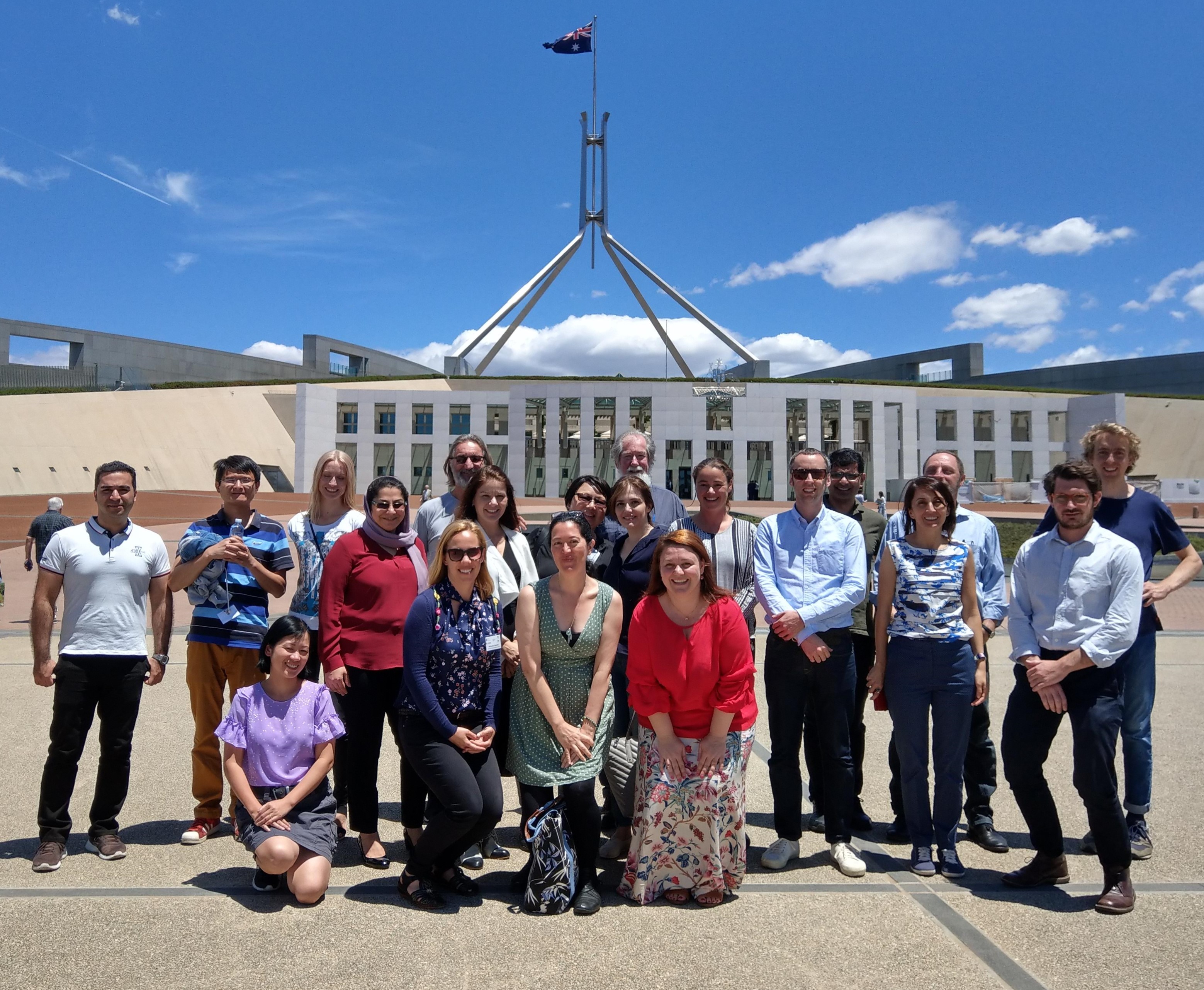ECRP Workshop: Australian Climate Change Adaptation Research Network for Settlements and Infrastructure
In December 2018 Future Earth Australia partnered with Climate-KIC and the Australian Climate Change Adaptation Research Network for Settlements and Infrastructure to bring a group of 25 ECRPs to Canberra for a three-day workshop focusing on infrastructure and settlements.
Day one began with a series of short presentations by the attendees on their research or areas of practice. Then, Chris Lee, CEO of Climate-KIC Australia, ran an interactive workshop game: how to hack a climate bond. Teams took on a variety of roles, serving as finance staff at publicly-listed companies from the transport, property, tourism, and natural resources sectors. The teams were tasked with balancing the tension between raising enough capital to undertake appropriate climate adaptation and avoiding accruing too much debt. For the players, this activity offered a real insight into monetizing climate risk.

Day two introduced attendees to a high-level policy pitching activity. Teams were provided with climate change scenarios to pitch to a "government minister". They had one hour to develop their proposal, and only 90 seconds to capture the Minister's interest. Dr/ Chris Hatherly, Director of Science Policy at the Academy, drew from his own experiences engaging with politicians to judge the pitches and choose a winning team.
Next, attendees embarked on a field trip, visiting the Australian National Botanic Gardens and Parliament House. The visit to the gardens provided an opportunity to learn about sustainable regenerative practices. At Parliament House, the ECRPs attended Question Time to observe government in action. The day concluded with a trip to a local winery, renowned for its sustainable agricultural practices and working with the local landscape.
On the last day of the workshop, Dorean Erhart, Manager of the Queensland Climate Resilience Councils Program and Lead of Climate Change and the Great Barrier Reef, gave a talk about building the Queensland Climate Resilient Councils and QCoast2100 programs. These programs link a number of related institutions and sectors to implement coastal adaptation strategies, and monitor and evaluate these strategies in real time.
Feedback from participants over the three days was overwhelmingly positive, with many making connections for future projects.
If you are interested in participating in the ECRP program, read more here.